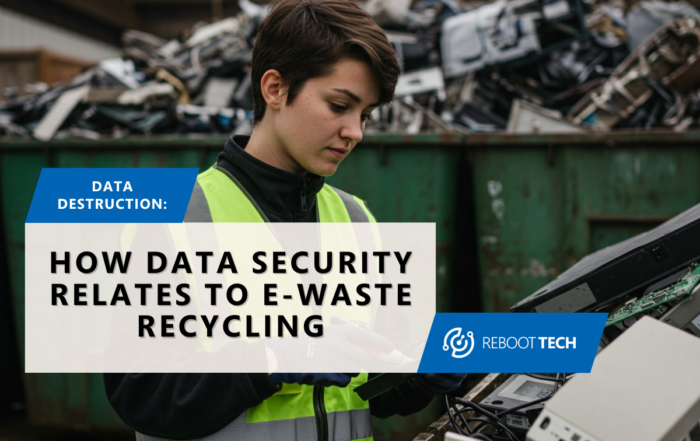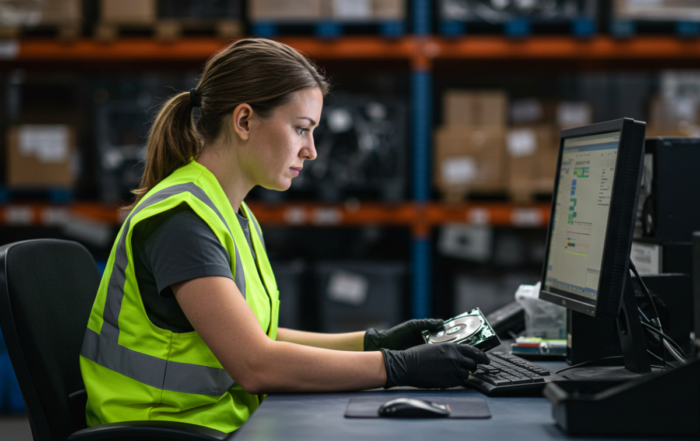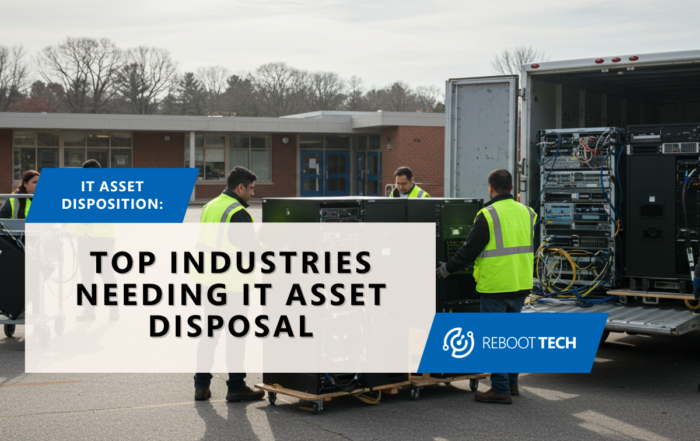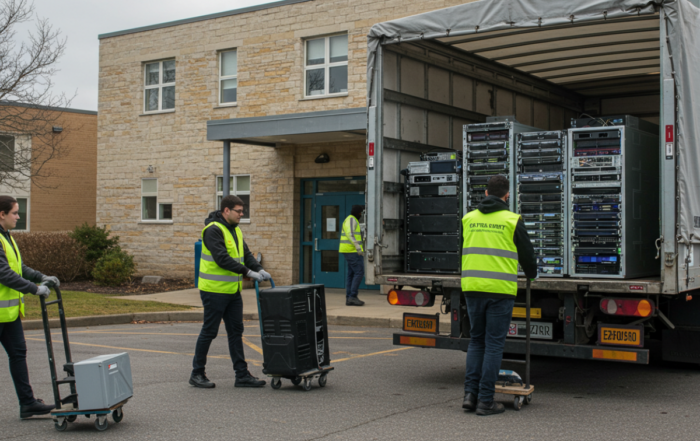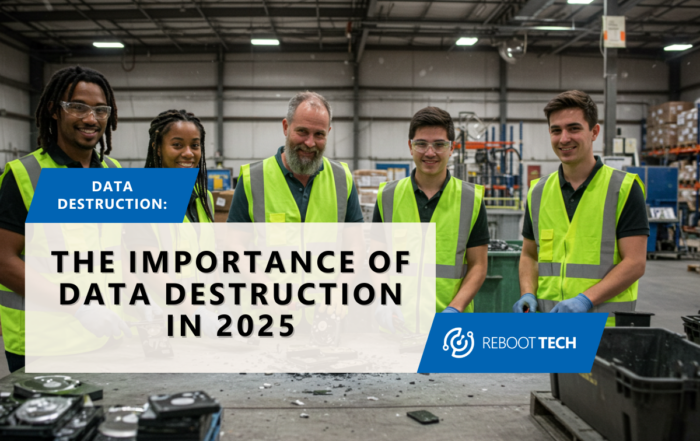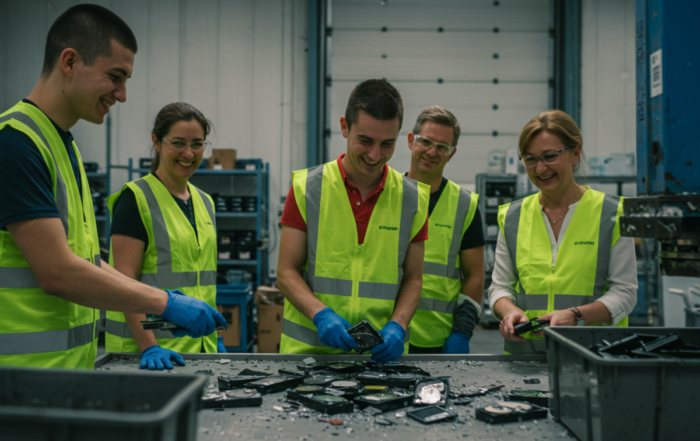Hazardous Waste Recycling
Welcome to Reboot Tech, your trusted partner for hazardous waste recycling. We are committed to helping you safely dispose of items that can harm the environment. Let’s work together to keep our planet clean and safe.
Hazardous waste can pose serious risks to both the environment and human health. For instance, improperly disposed batteries can leak harmful chemicals like lead and cadmium into the soil and water. Did you know that one improperly discarded battery can contaminate thousands of gallons of water? Similarly, paints and solvents can release toxic fumes and pollutants. A simple spill of motor oil can create a large, lasting impact on wildlife and ecosystems. It’s crucial to handle these items responsibly.
Note that this is not a complete list of hazardous e-waste, so if your device contains any of the following, it is generally considered hazardous e-waste. Mercury-containing devices: This includes items like mercury switches, relays, and certain older thermostats. Cathode Ray Tubes (CRTs) in general: Other types of equipment such as CRT-based medical devices or industrial equipment may also contain hazardous materials. Certain electronic components: Some older electronic devices may contain hazardous substances like cadmium, beryllium, or lead. Examples include certain capacitors, resistors, and relays.
Get A Quote!
List of Hazardous Waste Items
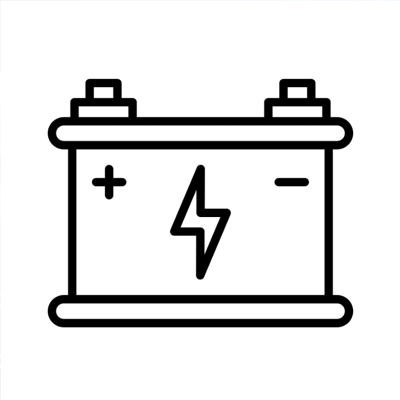
Batteries
- Alkaline batteries
- Lithium-ion batteries
- Nickel-cadmium (NiCd) batteries
- Lead-acid batteries
Monitors And Displays
- CRT devices including older televisions and computer monitors
- LCD desktop computer monitors, laptop computers, and tablets
- LCD televisions and smart displays
- Plasma televisions
- OLED-containing televisions
- OLED-containing desktop monitors, laptop computers, and tablets
- Portable DVD players with LCD screens


Specialized Equipment
- Cash registers and oscilloscopes containing CRTs
Light Bulbs
- Fluorescent light bulbs
- LED light bulbs


Kitchen Appliances
- Microwaves ovens
Microwave ovens made mostly of plastic don’t have to follow the rules for major appliances under the Metallic Discards Act. However, they still need to be managed under the rules for used electronic devices (UWED). A recycler specializing in used electronic devices can take apart these microwave ovens, whether or not they have materials of concern inside.
EcoNews
Why Data Security Matters in E-Waste Recycling Imagine throwing away an old laptop, thinking it’s just junk. But what if someone picks it up and recovers your personal files, banking details, or work documents? [...]
Why IT Asset Disposal Matters Technology is evolving at an incredible pace. Businesses upgrade their computers, servers, and networking equipment every few years to keep up with demand. But what happens to the old [...]
Why Data Destruction Matters in 2025 Imagine this: your old laptop, filled with sensitive files and passwords, ends up in the wrong hands. Now, your data is exposed, and you're facing serious risks like [...]
Welcome to 2025: Streamlining Your IT Upgrades The new year brings exciting opportunities for businesses to grow, improve efficiency, and adopt cutting-edge technologies. But what happens to the old IT equipment when you upgrade? [...]




